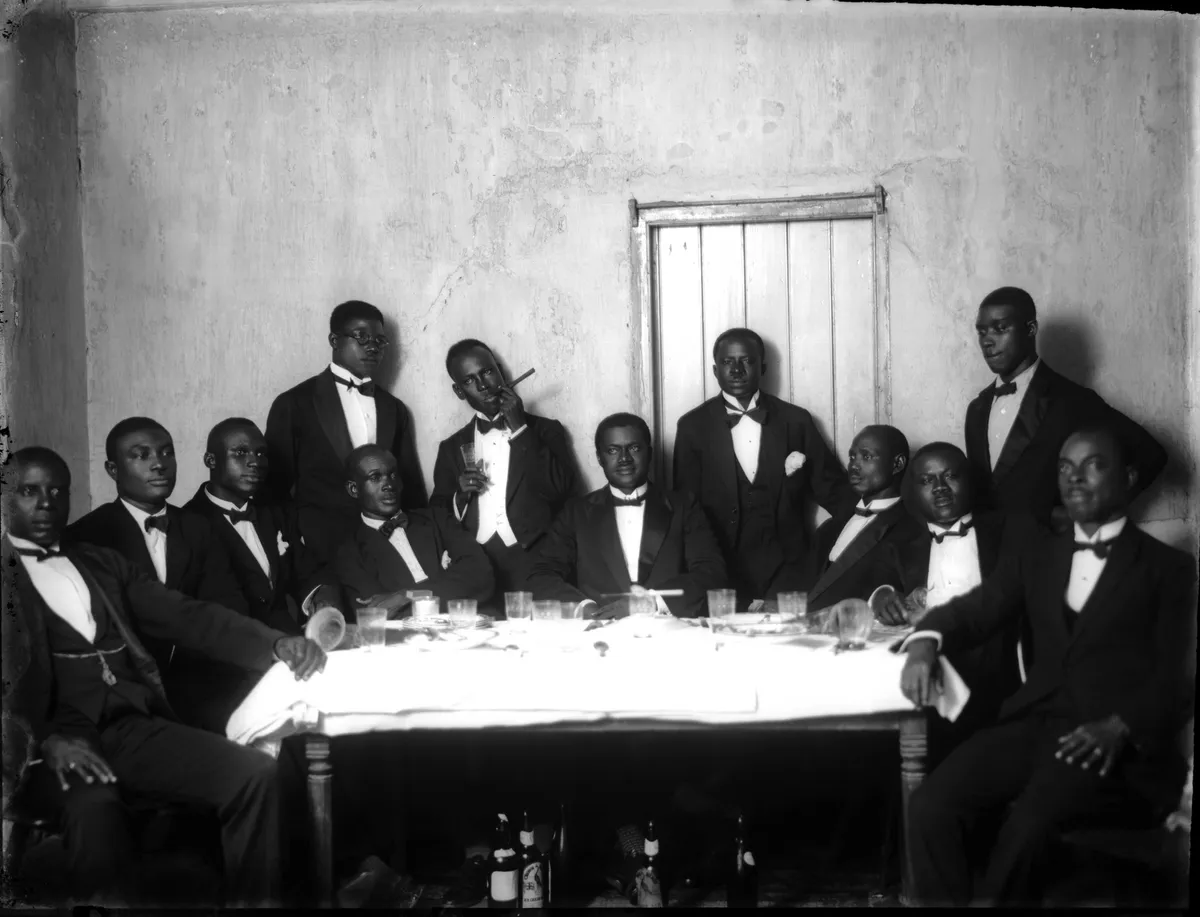Most of us are led to believe that happiness is a goal that can be attained if we make the right decisions, learn from our mistakes, and keep moving forward. We are taught that once we find it, we will be eternally satisfied in our lives, so we live feeling overwhelmed and inadequate, chasing this dream without ever questioning whether it is, in fact, flawed.
The reality is that it is flawed. “Happiness” is not a destination. It’s a state of mind, and you don’t need to be in it every moment of every day. Not only is that impossible, but it’s also unhealthy. Life is complex and uncertain. Ups and downs are normal. The day you land that promotion you’ve been longing for might also be the day you suffer your first heartbreak. How do you experience happiness if you don’t know sadness and pain?
It took me 39 years to understand this. Up until that point, I had believed that if I ticked a series of boxes (flashy career, two-story home, fast car, international travel) I would reach “success” and live my days out happy. But once I arrived at that place, I still felt unfulfilled. I realized the way I had defined success was based on someone else’s definition. What was I missing? The things that made me truly happy — human connection, positively impacting the lives of others, and being present — had been sidelined by my pursuit of success.
Sponsered3
So, I decided to disrupt the status quo. I left my job as an executive at a global company, relocated my family from Perth to Melbourne, bid adieu to an 18-year relationship, and started HackingHappy.co, a purpose-led company with the sole intent of helping others live happier lives. My goal in starting this company was to redefine what it means to be happy by giving myself and others the skills and language to relate to “happiness” in a more realistic and healthier way.
I set a lofty goal for myself: by 2025, I would teach 10 million people how to find happiness.
But I needed data and insights to do so. I conducted a series of experiments for three years. I interviewed over 100 people ranging in age from 22 to 70 from various walks of life. I led workshops with thousands of people in Australia, New Zealand, and the United States to explore and unpack what prevents us from living lives that we truly enjoy, rather than those that we consider “fulfilling” by definition.
Sponsered3
Throughout these experiments, I discovered a few recurring themes. Many of the people I interacted with were afraid of failure, financial insecurity, and being judged by others and themselves for not being good enough. Distraction, fear, and a lack of curiosity about oneself, others, and the world in general appeared to be the three most significant barriers to living a fulfilled and happy life.
Listening to people’s stories, I discovered that those who allowed themselves to fully process both “positive” and “negative” emotions led happier lives. As they processed their negative emotions, they were able to discover what was truly important to them. Some psychologists refer to this as emodiversity — the ability to feel a wide range of emotions at the same time.
People who felt the most fulfilled were those who had learned to let go of the need to be happy all the time and who had not only accepted but also appreciated the ups and downs of life. This shift in mindset and behavior enabled them to embrace uncertainty, embrace emotions (both positive and negative), and adapt to their surroundings with intention and meaning.
Sponsered3
Consider my mother as an example. She lost her entire life savings at the age of 60 after investing them in her brother’s business. It was catastrophic. The news came shortly after she learned of his untimely death. This did not discourage her: in her grief, she chose gratitude and made an intentional decision to continue living a full life, not only for herself and her mental health, but also for those who relied on her. She made the conscious decision to transition from farming to teaching yoga and assisting others in finding inner peace.
Sheree, a young corporate lawyer with no experience in entrepreneurship, walked away from her job and ended up founding Australia’s largest co-working space for female-led entrepreneurs. She now teaches women how to raise capital and start businesses.
People who deliberately adapt open doors to possibility and potential. This was a eureka moment for me. While you may not have control over every aspect of your environment, you do have control over yourself and the decisions you make, including those that affect your mental and emotional health.
Sponsered3
Based on my observations, I came up with this more fitting definition of happiness:
“Happiness is being able to ride the wave of every emotion that life throws at you, knowing that you can come out the other side just a little better than what you were before because you have the skills (focus, courage, curiosity), the resources (a positive mindset), and the support structure (a community) to make that happen.”
The more I thought about it, the more intrigued I became by the concept of adaptability and its role in achieving a state of fulfillment. That’s when I decided to embark on my next adventure: developing a methodology for hacking happiness.
Sponsered3
During my research, I discovered that we adapt best when change is imposed by external forces within our environment. Consider how we’ve adapted to living with Covid and lockdowns. We’ve adapted because we’ve had no choice. That’s a great survival skill, but it’s not ideal for thriving. You thrive through self-motivated, proactive adaptation, such as my mother and Sheree. It’s not a mindset of “just getting by,” but one of purpose.
While intentional adaptability takes time and practice to get the hang of, through my work, I’ve identified three primary skills that can help you get started.
Focus
During my research, I discovered that we adapt best when change is imposed by external forces within our environment. Consider how we’ve adapted to living with Covid and lockdowns. We’ve adapted because we’ve had no choice. That’s a great survival skill, but it’s not ideal for thriving. You thrive through self-motivated, proactive adaptation, such as my mother and Sheree. It’s not a mindset of “just getting by,” but one of purpose.
Sponsered3
How many emails have you received encouraging you to use your spare time to learn a new language or take up a new hobby? We fill every waking moment with something to do in order to be productive, whether it’s finding an activity to keep us busy or spending time on our devices.
However, our constant focus on doing things can lead to avoidance. Distractions prevent us from finding the mental space to sit with both positive and negative emotions, such as boredom and sadness. Cultivating focus entails learning to tune out the constant white noise of busyness. It’s about making space for ourselves to be, to think clearly, and to figure out what truly matters to us so that we can incorporate more of those things into our lives.
How to Build Focus
Remove the word “busy” from your vocabulary for one week and observe how it affects your mindset, behavior, and connection with others. This is something I did two years ago that changed my life. When people asked how I was doing, instead of saying, “I’m so busy,” I’d say, “I’m positively engaged doing XYZ.”
Sponsered3
Letting go of the word “busy” is the first step toward taking responsibility for your actions and explaining them with intention. Instead of telling others and yourself, “I’m overwhelmed with tasks and distractions,” change your mindset to, “I’ve decided to invest my time and productivity into these three things.”
This can make us feel less overwhelmed by our to-do list (“I have too much to do!”) and more in command of our time (“I’m doing things that truly matter.”). It also prevents us from hiding behind a word that reveals no useful information to others and is frequently code for something else, such as anxiety, loneliness, our need for self-validation, or FOMO (fear of missing out).
Courage
Curiosity and concentration are insufficient. Fear was identified as the most significant barrier to change during my research. However, fear (along with failure) is one of the most powerful levers you have at your disposal to enable happiness. Building courage entails letting go of the conditioned belief that fear should be used as a warning signal to flee rather than lean into possibility. Courage allows you to face fear with the knowledge that it is a universal, biological human emotion that you can embrace and use to shape the change you want to see. Leaning into non-life threatening fear allows us to process it creatively and remove barriers that stand between wanting something and acting on it.
Sponsered3
Through my workshops in large corporations, I discovered that when we openly share our fears and failures with our peers, we realize that many of our fears are shared and that we are not alone. This, in turn, improves our self-esteem and allows us to move through fear and failure in a way that is innovative, creative, and focused on growth rather than limitation.
How to Build Courage
Micro bravery is an excellent way to achieve this. Micro bravery is the practice of developing courage by doing small things every day that force you out of your comfort zone. It can be as simple as being the first person to speak up during a meeting, trying a new cuisine, enrolling in an online class, or having an open conversation with a friend. Over time, these small acts of bravery enable us to take risks that would otherwise be impossible. We learn that fear is never as bad or as big in our heads as we make it. Surprising joy is frequently found on the other side.
Sponsered3
Curiosity
Accepting what you can’t change while acknowledging what you can is part of being adaptable. Curiosity plays a significant role in this. You will never see the possibilities, paths, or opinions that lie beyond what is most immediately available to you if you never question yourself, others, or the world around you. Curiosity necessitates that we be fully present, listen more than we speak, ask more questions, be aware of new ideas, and embrace the unfamiliar. Most importantly, it calls into question our deeply held beliefs.
When we are curious (“What would happen if I took that job offer in London?”), we can imagine a future that is not easy or obvious. When we inquire (“Why can’t I move somewhere new? Why can’t I change?”), we begin to identify the behaviors or fears that are preventing us from trying something new. That is the first step toward learning how to adapt and change in an intentional manner.
How to Build Curiosity
Sponsered3
Make a list of everything you’re curious about but know nothing about — and don’t limit it to work-related topics. “How will Artificial Intelligence impact my job?” might be on your list, but so might “Why does a wine glass have a stem?” or “How do I begin writing a book or starting a podcast?”
After you’ve written down all of your ideas, go over your list and highlight the one that piques your interest the most. Now, set aside some time every day to learn more about it. Every morning, I give myself 15 minutes of learning time before doing any work. Those 15 minutes add up to an additional 65 hours of knowledge acquisition per year.
What happens once you’ve mastered these abilities? A great deal. Through my research, I discovered that when people intentionally develop their ability to adapt, they:
Sponsered3
- Get better at taking control of their time because they know that it is their most precious and valuable resource.
- Become less afraid of saying “no,” and say it often.
- Use fear as a green light to ride the edge of their comfort zone, because they know that growth occurs in discomfort.
- Surround themselves with “unlike minds”— people who challenge them to look at the world through a different lens.
- Become more comfortable sitting with quiet and stillness, because they know it’s where the brain does its most powerful work.
- Trust the discomfort of not accepting the first answer that presents itself.
- Make the time to cultivate deep human connections because they know opportunity and possibility lie at the other end.
Happiness should not be a goal or an end state, but rather a way of life. It may appear to be a difficult task in an uncertain world. However, if you change your perception of what it means to be happy, you may notice that you begin to feel it much more.
Sponsered3




